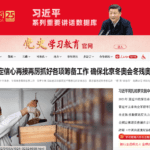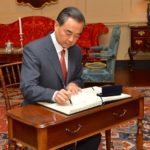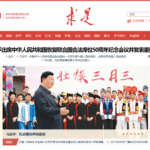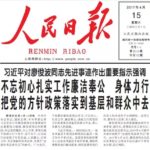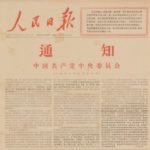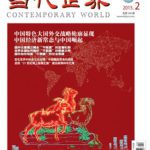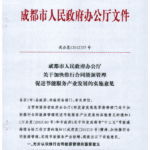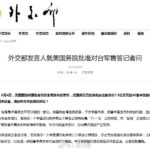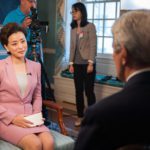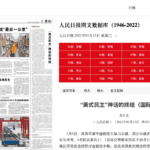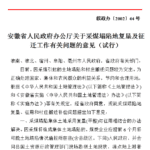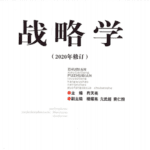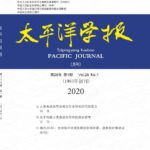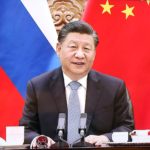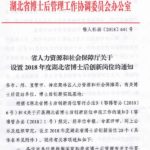Library
| Title | Published | Uploaded | Source | Author | Media Type | Category | Tags | Related Analysis |
|---|
|
The Belt and Road Initiative and China's Strategy
论一带一路与中国战略
This is a transcript of a July 2023 speech delivered by Shi Yinhong, an international relations scholar at Renmin University, and an interview conducted by Xue Li, a researcher at the Institute of World Economy and Politics of the Chinese Academy of Social Sciences. Shi argues that due to rising suspicion of China in developing countries and economic resource constraints at home, Beijing must become much more targeted and responsive to the needs of developing countries in initiating and facilitating projects along the BRI. Shi also encourages Beijing and Chinese experts to be careful when making public assessments of the geo-strategic significance of the BRI so as not to raise concerns in potential partner countries. |
Shi Yinhong 时殷弘 | |||||||
|
Dynamics and Lessons of the “New Normal” in Sino-U.S. Relations as Seen from the San Francisco Summit
从旧金山峰会看中美关系“新常态”的动向与启示
Da Wei, a professor at Tsinghua University, argues the Xi-Biden summit in November 2023 revealed U.S.-China relations have entered a “new normal” characterized by four features: mutual acceptance that tension will continue indefinitely, mutual assessment that full-blown conflict would be unacceptable, mutual understanding that neither country will fulfill its strategic goals completely, and mutual observation that economic and social resilience is possible amidst intense bilateral competition. |
Da Wei 达巍 | |||||||
|
The Global South Is an Important Driving Force in the Evolution of the International Order
“全球南方”是国际秩序演变的重要推动力量
Niu Haibin, a foreign policy scholar at the Shanghai Institutes for International Studies, explains the rising international influence of the Global South and assesses implications for China. Niu recommends Beijing amp up efforts to frame itself as a member of the Global South and publicly push for expansion of BRICS and other initiatives, which can enhance China’s ties with individual members of the Global South and build perceptions of China as a leader of among them. |
Niu Haibin 牛海彬 | |||||||
|
The Global South in the Great Power Game and Global Governance
大国博弈与全球治理中的“全球南方”
Ren Lin, a global governance scholar at the Chinese Academy of Social Sciences, suggests Washington is selectively engaging the Global South in ways designed to intensify contradictions and antagonisms between its membership. This strategy, Ren assesses, ultimately aims to isolate China and reduce the effectiveness of BRICS and other groups that threaten U.S. agenda-setting in global governance. |
Ren Lin 任琳 | |||||||
|
What “Partnerships” Does China Have?
中国的“伙伴”关系有哪些?
Xiang Haoyu, a research fellow at a prominent Chinese think tank, presents a typology of China’s diplomatic partnerships – which range from “strategic” partnerships (the most common type, held with at least 80 countries) to “all-weather” or “permanent” partnerships, describing very close ties with countries such as Pakistan, Venezuela, and Belarus. Xiang contrasts Beijing’s pursuit of partnerships to the “zero-sum” alliance network of the West, and suggests partnerships are a powerful diplomatic tool for Beijing that can be flexibly adapted to the counterpart country’s conditions and needs. |
Xiang Haoyu 项昊宇 | |||||||
|
The International Environment and China’s Role amid Great Changes Unseen in a Century
百年未有之大变局下的国际环境与中国角色
Dai Changzheng, a national security scholar at the Beijing-based University of International Business and Economics, argues China’s external environment is becoming more challenging due to rising tensions with the United States and heightened risk of pandemics, economic crises, and regional conflicts. Yet, Dai suggests that Beijing now has significant power to shape its external environment, given its substantial economic growth in past decades. Dai recommends Beijing advance and preserve China’s interests in this new environment by deepening ties with developing and regional countries and actively participating in global governance institutions. |
Dai Changzheng 戴长征 | |||||||
|
I Have Always Had Strong Confidence in the Chinese Economy
我一直对中国经济保有很强的信心
Yao Yang, a leading economist at Peking University, argues pessimistic assessments of China’s growth trajectory underestimate strengths of the Chinese economy. These strengths, in Yao’s view, include China’s technological prowess, especially in clean energy products of the future such as EVs and solar panels, and its scale and cost advantages in manufacturing. Yao argues that Western efforts to “derisk” may impinge on China’s technological development temporarily, but will come at higher costs for the United States and its partners, given the funds required to reshore manufacturing and the projected revenue losses of selling key technology products to China. |
Yao Yang 姚洋 | |||||||
|
The Accession of Arab Countries to the BRICS Is an Important Milestone in the Trend of Diversification in International Politics
阿拉伯国家加入金砖国家是国际政治多元化趋势的重要里程碑
A Middle East researcher explores drivers behind Arab countries’ growing interest in BRICS membership, on the back of successful accession of Saudi Arabia, Egypt, and the United Arab Emirates to the organization in 2023. He argues that the countries hope to benefit economically from closer ties with China and Russia in the energy field, but also see BRICS membership as a way to accelerate the formation of a multipolar world order more favorable to their interests. |
Gu Zhenglong 顾正龙 | |||||||
|
Coexistence with the United States: New Challenges in China's Middle East Policy
与美国共处:中国中东政策的新挑战
A leading Middle East scholar at a Ministry of State Security-affiliated think tank explores scenarios for U.S.-China competition in the region. He argues that regional frictions between the two powers have remained relatively limited to date, in part due to diversified forms of engagement. Detailing debates on Middle East strategy in Washington and Beijing, however, he warns that relations may become more fractious going forward. |
Niu Xinchun 牛新春 | |||||||
|
China’s Middle East Major Country Diplomacy against the Background of Upheaval in the Middle East
中东剧变背景下中国中东大国外交论析
Scholars at the Shanghai International Studies University suggest Beijing is deepening its economic, diplomatic, and security engagement in the Middle East largely at the request of countries in the region. Going forward, the authors suggest that as it seeks greater international influence, Beijing will need to carefully manage its regional engagement in order to avoid disappointing expectations among these states and minimize points of frictions with other extra-regional powers such as the U.S. and EU. |
Gao Han 髙瀚, Liu Shengxiang 刘胜湘 |
